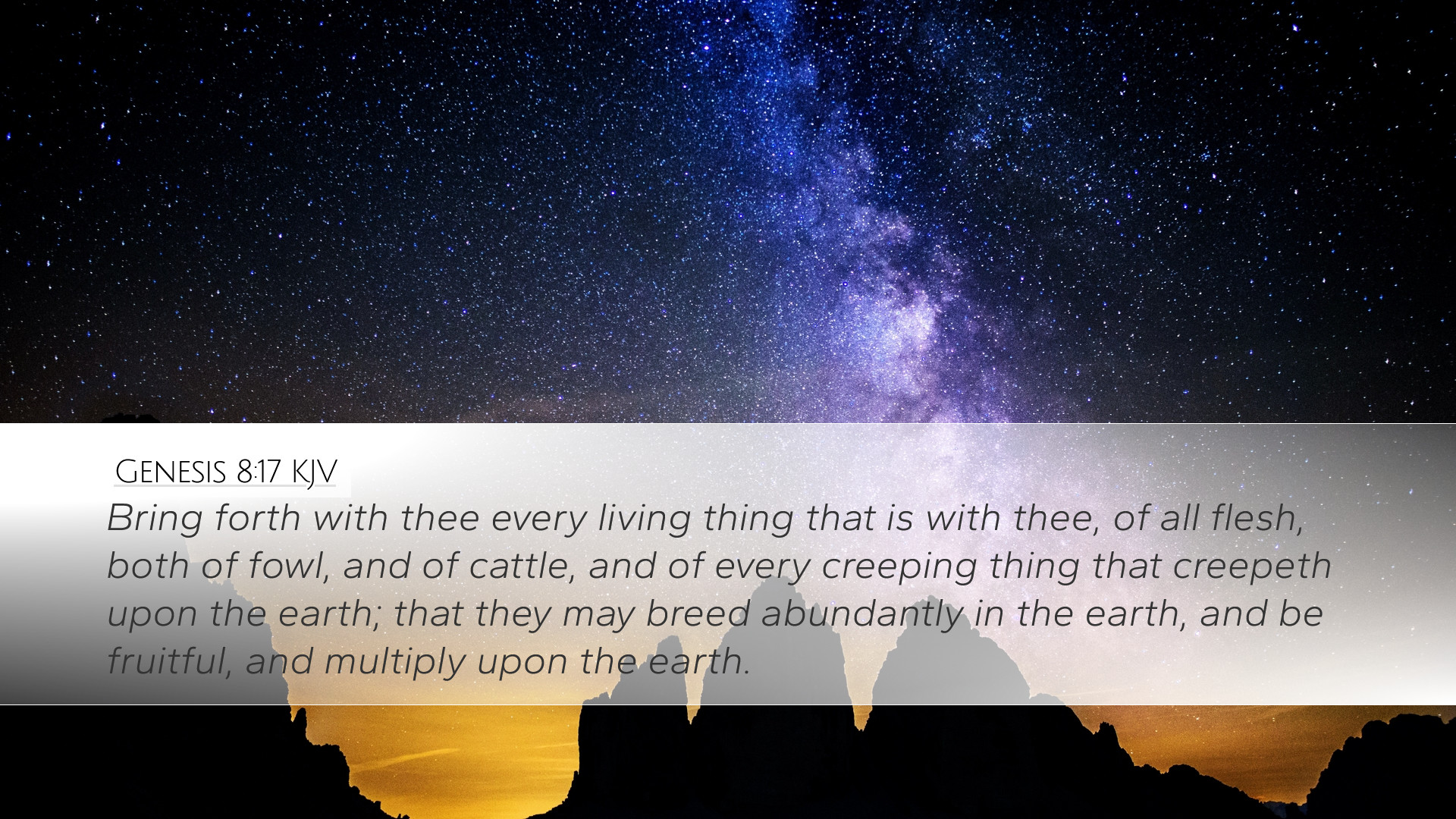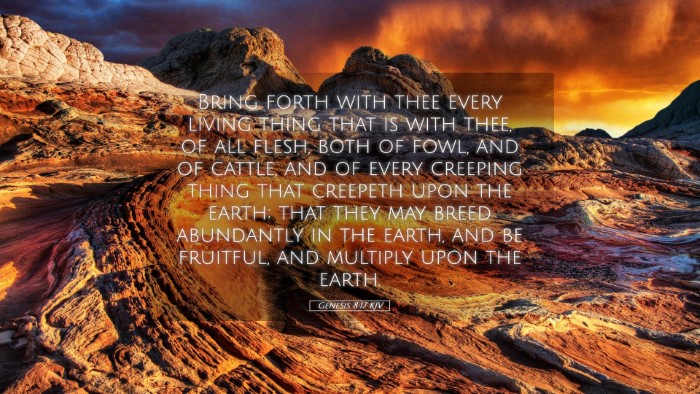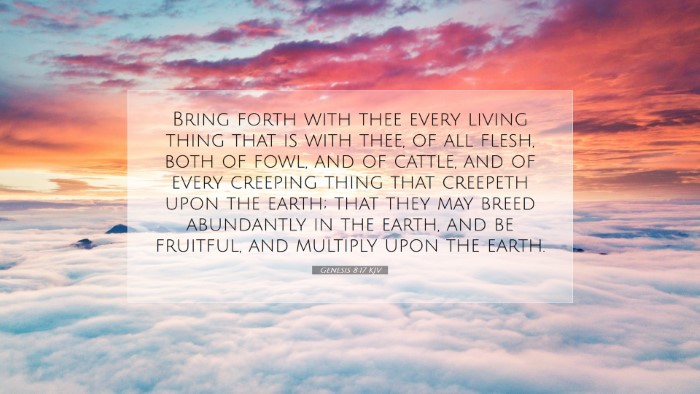Commentary on Genesis 8:17
Bible Verse: "Bring forth with thee every living thing that is with thee, of all flesh, both of fowl, and of cattle, and of every creeping thing that creepeth upon the earth; that they may breed abundantly in the earth, and be fruitful, and multiply upon the earth."
Introduction
Genesis 8:17 occurs in the narrative of the Great Flood, a pivotal moment in the biblical account of God's judgment and mercy. This particular verse marks a significant transition in the story, emphasizing themes of restoration and proliferation in the post-flood world. The commandment given to Noah brings forth profound theological implications regarding creation, divine providence, and the continuity of life.
Theological Insights
This passage reflects not only God's desire for the continuation of life after the flood but also illustrates His covenant with creation. The phrase "bring forth" underscores the active role that Noah is to play in the renewal process of the earth.
God's Sovereignty and Providence
Matthew Henry emphasizes that this command exemplifies God's sovereign hand in preserving life. He notes that despite the previous destruction caused by the flood, God's intention is to restore and replenish the earth.
Covenantal Relationship
Albert Barnes highlights the covenantal aspect, pointing out that God's instructions to Noah come with the assurance that life will not only be restored but will also thrive. God's promise to Noah and the creatures reflects a broader theme within Scripture: the hope for regeneration and multiplicity in creation.
Creation's Response
Adam Clarke comments on the importance of this command, suggesting that it showcases the created order's inherent design for life. After the flood, the earth was to be populated and cultivated, which speaks to the goodness of creation and the inherent vivacity imbued by the Creator.
Symbolic Significance
Genesis 8:17 is rich with symbolic meaning. The release of animals signifies not only the end of judgment but also the commencement of a new era, a theme prevalent in various biblical narratives.
New Creation Motif
The command to "be fruitful, and multiply" evokes the creation mandate given in Genesis 1:28. This repetition emphasizes that life is intended to flourish, reiterating God's original desire for His creation to thrive. Henry draws parallels to the Christian understanding of new creation through Christ, suggesting that just as Noah's family and the animals were to repopulate the earth, so too believers are called to bring forth spiritual life.
The Role of Humanity
Noah's role as steward is significant. Barnes notes that humanity was entrusted with the responsibility to care for God's creation. This stewardship reflects a divine partnership between God and humanity, where humans are agents of God's restorative purposes on earth.
Practical Implications for Believers
Genesis 8:17 serves as a reminder for believers on their roles in creation care and stewardship. It calls for an active participation in the ongoing work of God in the world, recognizing the sacredness of all life.
Responsibility of Stewardship
Believers today are reminded of the responsibility to honor and protect God's creation. Clarke encourages leaders and theologians alike to consider their impact on the environment and the inherent value of all living creatures. As Noah was called to bring forth living things, so too are we called to nurture and sustain the world around us.
Faith in Divine Providence
This verse reassures believers of God's continual involvement in the renewal of creation. It calls for a faith that anticipates growth and abundance in various forms, whether spiritual or material. Henry encourages readers to trust in God's plans for restoration and to participate joyfully in His work.
Conclusion
Genesis 8:17 is more than a simple command; it is a profound directive that encapsulates themes of renewal, stewardship, and divine promise. The insights gleaned from public domain commentaries provide a richer understanding of how this passage speaks not only to the historical context of Noah but also to modern readers regarding their role in God's creation.
As we reflect on this verse, may we embrace our call to be active participants in the fullness of life that God designs, honoring the sacred trust He places in us to care for the earth and all its creatures.


